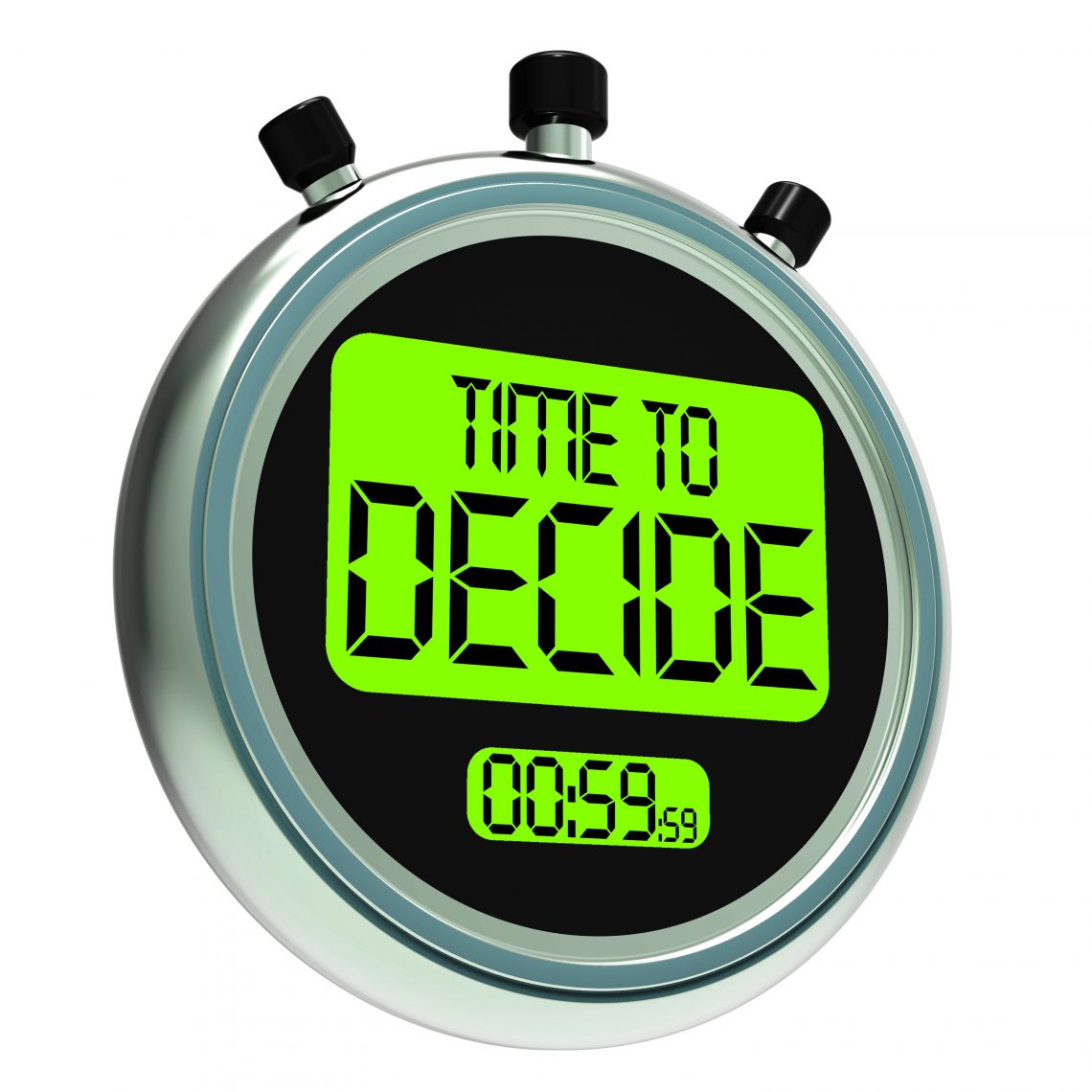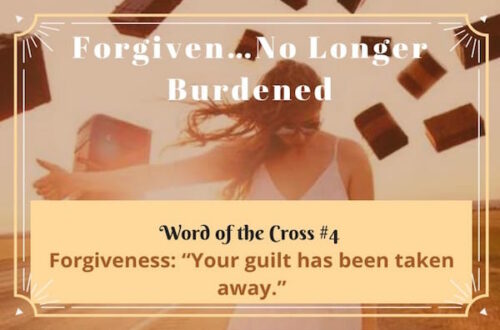
Hard Questions about Worldview and Character and our Vote
When Donald Trump and Hillary Clinton ran for president in 2016, I could hardly believe that I would to have to choose one of them in order to make my vote count. I know, many people made a vote in principle for a third party candidate. But I couldn’t do that.
I believe that casting a vote that helps determine the outcome is being the best steward of my citizenship and my vote. Even now, in 2020, I know people who will not vote for either candidate on principle. And yet the candidate they are backing is not even on the ballot in my state.
That is a political statement. Not a truly meaningful vote. I respect them and know that this is their choice in good conscience before the Lord. But in my opinion there is too much at stake in this election to cast a vote that is meaningless to the outcome.
This is a worldview election. We are voting to strengthen one worldview and weaken another. How so?
Historically, we’ve seen three worldviews come to dominate today’s culture: The Judeo-Christian worldview, a secular modern worldview and a secular postmodern worldview. While they have arisen successively, most people mix some beliefs from all three, unless they have been very astute about maintaining the cohesiveness of their worldview—eliminating internal contradictions. And the coherence of their worldview—eliminating ideas that don’t agree with the reality of our world.
(To get the most out of the following discussion, if you’re not familiar with these three world views, I encourage you to quickly review this recent blog that lays out their differences. Or scroll to the bottom of this post where you’ll find a quick one minute overview.) Now we’re ready to see how worldviews and character may influence our vote.
Check out the hard questions that follow:
How can Christians vote for someone as mean-spirited and pugnacious as Donald Trump? Isn’t that out of line with Jesus’ gospel of love and grace?
I asked the same questions back in the very influential South Carolina primary of 2015. In fact, to help my readers figure out their vote, I visited and blogged about the Rubio and Cruz rallies. I didn’t even consider visiting the Trump rally because of Trump’s serial adultery and character deficiencies. Surely, I thought, Christians who should care about character will not vote for him. To my great dismay, they did. And the evangelical support that began here in SC rolled out to the nation. In the general election I reluctantly voted for Trump because of his stand against abortion, and his promises to appoint originalist judges to the Supreme Court. Why was that important to me?
Because our constitution was originally written by men who largely held a Christian worldview mixed with the beginnings of the modern worldview. Men who believed that we are created by God. Made male and female. Made in his image. And endowed by him with the right to life and liberty. I want men and women on the bench who value the Constitution as our founders wrote it and intended it. Who agree that these rights are gifts from God. Not the State. Because when the State gives rights, the State can take them away.
Promising to choose originalist justices was important. I’ve seen progressive judges create law completely disconnected from the constitution, based upon their concerns for the “real world consequences” of their rulings. But as the Barrett confirmation hearings illustrated, originalist judges believe they should leave the “real world consequences” of their rulings to Congress and the president. They understand they were not elected to create new meanings in the constitutions or create new laws. They are appointed to determine how the laws of Congress line up with the original intent of the Constitution. This is a great, far-reaching good for our country.
Secondly, I saw progressive judges chipping away at the goodness of God creating us male and female. Chipping away at the sanctity of marriage between a man and a woman. Chipping away at the right to life. And now, going into Tuesday’s election, I see the Hyde Amendment, which would force me to pay for abortion with my tax dollars, in jeopardy. I see pressure to re-instate late term abortions.
And once such casual attitudes about abortion are absorbed by thousands and thousands of Americans, then the cultural pressure for a young woman to get an abortion multiplies. According to the Gutmacher Institute, the research arm of Planned Parenthood, fully 30% of woman seeking an abortion have felt pressured to do so. The American Psychological Task Force on Abortion and Mental Health has research showing it closer to 64%. A judicial ruling that takes a life is horrific. Coercive pressure on the mother to take the life of her child is also a great evil. It damages the hearts and souls of young women for the rest of their lives.
Likewise the next generation feels cultural pressure to conform to culturally drawn and legally sanctioned sexual stereotypes. I have seen our sensitive, artistic young men pressured to “come out” as gay. Our successful, athletic young women to “come out” as lesbians. And now, with the celebration of transgender “rights, I am reading about gay men being pressured to transition to female gender identity and lesbian young women to transition to male gender identity. “You’re in the wrong body!”
John Piper has written an article where he challenged Christians not to be so focused on “saving human lives and freedoms” that we don’t consider the spiritually “deadly” effect that a leader’s character will have on the beliefs and behaviors of his people. I do take it into account, as do others. I do believe that President Trump’s divisiveness, mocking and harshness has helped to create a coarser culture. Especially for the next generation. It grieves me.
But I am also concerned for the children and young people who are impacted by policies that encourage the cultural pressure that reaches deeply into their very souls and shapes their sexual orientation and gender identity. Policies that may encourage or even pressure them to choose to kill their children.
Will Joe Biden’s character be stronger and better for the country than President Trump?
I do think Vice President Biden is less contentious and harsh than President Trump. But he faces grave questions about enabling his son’s influence peddling and making millions off the Biden family name from countries like China and Ukraine. Questions like these from Glenn Greenwald, a journalist who co-founded The Intercept. Greenwald would like to ask Joe Biden…
- whether he claims any the emails or texts on Hunter’s laptop are fabricated (and, if so, which specific ones);
- whether he knows if Hunter did indeed drop off laptops at the Delaware repair store;
- whether Hunter ever asked him to meet with Burisma executives or whether he in fact did so;
- whether Biden ever knew about business proposals in Ukraine or China being pursued by his son and brother in which Biden was a proposed participant and,
- how Biden could justify expending so much energy as Vice President demanding that the Ukrainian General Prosecutor be fired, and why the replacement — Yuriy Lutsenko, someone who had no experience in law; was a crony of Ukrainian President Petro Poroshenko; and himself had a history of corruption allegations — was acceptable if Biden’s goal really was to fight corruption in Ukraine rather than benefit Burisma or control Ukrainian internal affairs for some other objective.
What does it say about Biden’s character that he will not address these reasonable questions about his influence? That he dismisses these questions as a smear campaign? That he purports that Tony Bobulinsky, a reputable businessman and former Navy seal and officer whom his son recruited to help them put together a big business deal, is an agent of Russian disinformation? Mr. Bobalinski is crushed by the Bidens trying to smear him.
What does it say about Biden’s character that he chose Kamala Harris, who can be harsh and divisive and the most far left senator, as his running mate? Remember her demeanor in the Kavanaugh hearings?
Character is deeply wedded to the values we hold. What does it say about Joe Biden that he has promised to make passage of the Equality Act his top legislative priority? Violating the natural modesty of high school and college girls by forcing them to allow male-bodied trans students in their bathrooms and locker rooms? Forcing female athletes to compete with male bodied trans athletes?
What does it say about his character that he is strongly pro-abortion? Suppose a building full of children was on fire? Suppose a vindictive, mean-spirited guy happened by and helped you put out the fire and save many lives? Suppose another guy that was generally more kind and respectful happened by and poured gasoline on the fire, taking the lives of many innocent children? Which one might have the better character?
President Trump can be so insulting and offensive. But what are we to think of the worldview behind BLM and Antifa? This is where we come full circle to our discussion of worldviews. Consider the worldview of critical race theory: It begins with a postmodern worldview. But then takes it further:
- If truth is no longer discovered but created, then power is the only game in town.
If I want my truth to prevail, then I must fight for it. Make my voice louder than all others. Protests, certainly. Shaming and intimidation, absolutely. Violence, maybe?
If we share the same identity then we can contend for our truth together. We can create a new larger story, based on our shared identity.
- There is a larger story. But instead of interpreting life through the lens of creation, fall, redemption, or particles, progress and Science, we interpret it through the lens of a power struggle between oppressors and victims.
What is ultimately the problem? Not sin against God. Or ignorance. Rather the injustice of the powerful oppressing the weak. Racism. Homophobia. Transphobia.
What is the solution? Revolution. Taking the power from the oppressors and giving it the victims. Liberate and empower victims.
- How can we find the truth? Facts/history/biology etc. must be understood through the lens of victims/oppressors-Project 1619 for history, LGBTQ for gender identity/biology etc.
Schools must impart knowledge through this grid.
- Meaning and hope come from solidarity with my identity group and other victims and our liberation and empowerment. Revolution: Winning the power game.
Our Black neighbors have suffered much throughout our history. They are crying out for justice. And we need to listen and talk and work for changes. But as BLM and Antifa rise, this worldview is being embraced by thousands. It’s becoming the worldview in the Arts and Humanities sides of our Universities. And it is increasingly taking hold in far left politics.
So different from a Christian worldview that is a movement of forgiveness and reconciliation. Look at the pictures of Portland after a BLM protest and a night of rioting and attacking the Federal Courthouse. Here is another hard question for Joe Biden: Why, during your entire convention, didn’t you even mention or condemn this rioting in Portland? Seattle? Minneapolis? Kenosha?
Do you support this worldview? Do you think it fosters the same cruelty that you profess to despise?
Yes, I grieve over Trump’s flaws. But I would rather vote for his worldview, be it more modern than Christian, than this worldview. And I would rather leave a nation shaped by the original intent of the constitution to the next generation.
If I’ve got this wrong, please show me where. Whether you agree or disagree, please vote!
A one minute overview of the Christian, modern and postmodern worldviews…
The Christian worldview, based on the Bible, tells us…
- There is an Author. In the beginning was the Word. A good and loving God. All things were made by him.
- There is a larger story: Creation. Fall. Redemption. What is wrong with the world? The enemy. Sin. The fall. Our failure to love God and one another.
How do we fix it? Ultimately we can’t. But Jesus died to bear our sins and reconcile us to God.
- Truth corresponds w/ reality. What is true is what is real in God’s creation as he sees it. Paul says, “We speak truth in the sight of God.”
- Truth is revealed and discovered in creation. In Scripture. In the person and work of Jesus Christ, especially his earthly life.
- Hope transcends the brokenness of this world. It’s redemption and resurrection. Blessing and forgiveness to anyone who “believes and receives.” Bringing God’s kingdom wherever we are. An eternal kind of life in God’s presence.
The secular modern worldview tells us:
- There is no Author. In the beginning were the particles. And the particles randomly bumped into each other and combined until they formed everything that exists.
- There is no author, but there is a story: Science, Progress and the Ascent of Man. What is wrong w the world? Ignorance. Lack of money, education, opportunity. (No enemy. No sin. No fall.) How do we fix it? More education. Technology. Money. Opportunity. With Science leading the way.
- Truth still corresponds w/ reality. Truth is discoverable. As faith in God declined, knowledge of facts and values divided. Facts are objectively true and discoverable. But values are relative and created.
- We find truth through our senses, what we can see, hear, measure etc. (Empirical inquiry. Science.). And reason and logic (“We hold these truths to be self-evident”). There is no spiritual knowledge.
- Hope is limited to this world. With enough money, education, and technology we can solve our problems; create a Utopia. Just give us until tomorrow.
The postmodern worldview tells us:
• Who knows if there’s an Author. In the beginning was God, the particles, whatever.
• If there is no Author, there is no larger story. What is wrong with the world? Nothing. Everything. The world just is. If there is no larger story, there is only a “tournament of narratives.” Everyone lives in their own small story. Life is messy, painful. Make your own story as interesting as you can. Fix what you can. Or not. Whatever.
• Truth: no longer corresponds to an objective reality “out there.” Reality is a matter of group or individual perception. Truth is created in my group, my mind, my heart. My own experience. My “truth,” my reality—my facts and values—are not discovered “out there,” but created “in here.”
• How can we find truth? With so many competing “truth” claims, we can see that the brain and powers of reason are not reliable and limited to our own perspective. Language cannot reliably convey thought and reason. The result? Subjective “truth.” I create my “truth” through my senses, experience, imagination, direct acquaintance. “My truth” devalues empiricism & reason, but is open to spiritual “truth” and ”knowledge.”
• Science and Progress haven’t delivered on their promises. (This is Utopia?) We have to create our own meaning and hope. (But it’s proving to be elusive. So we see a cultural crisis of transcendent meaning and hope.)




